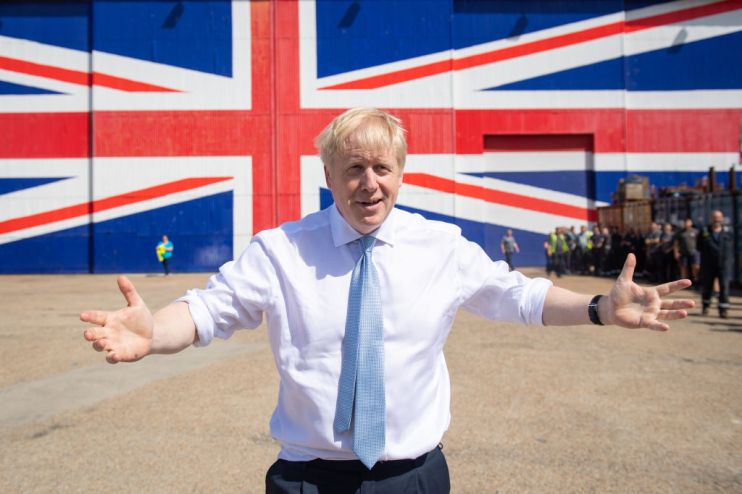How the Anglosphere philosophy will fuel the new Prime Minister’s foreign policy

It is often important to look at a leader’s idols for clues as to what makes them tick.
British critics of Boris Johnson, rather than dismissing him as a cut-rate Winston Churchill tribute act, would do far better looking at what it is about the great man that so impresses the current Prime Minister.
The answer is there for all with eyes to see. While in Australia in 2017, Boris gave an impassioned speech firmly supporting Churchill’s unwavering belief in “the special genius of the English-speaking peoples”.
Boris and key aides around him are strong proponents of the Anglosphere concept, a neglected philosophy that sees the informal alliance of the world’s English-speaking powers not as a relic of the UK’s past, but as the key to its future.
For Prime Minister Johnson definitively sees the world far differently from the tired, discredited British establishment, of which Theresa May was a charter member.
I myself was involved in the creation of this notion 20 years ago, as it explained to me the reality of much of international relations, and yet was fascinatingly almost never commented upon.
The Anglosphere is vital to understand, as it provides an overall strategic narrative for much that the new Prime Minister is about to attempt to do in terms of Britain’s foreign policy.
In terms of strategic alliances, in Nato – still the undisputed flagship of western defence – only the US, UK, and France (just about) have full spectrum capabilities, that is, the capacity to engage in every sort of military mission from peace-keeping to war-fighting. As such, the US and the UK dominate the alliance.
In Asia, the Anglosphere is also alive and well. The Australians, Indians, and Americans make up three members of the nascent “Quad” (the other being Japan), which over time is evolving into the key informal nexus for balancing China.
In terms of intelligence gathering, the “Five Eyes” of the US, UK, Canada, Australia, and New Zealand form the paramount intelligence sharing grouping in the world.
Economically too, the Anglosphere represents the parts of the world that are actually growing, rather than the sclerotic European Union. India and the US account for two of the fastest-growing, major world economies.
In addition, the 2019 Heritage Foundation Index of Economic Freedom makes for some fascinating reading. If Hong Kong is counted as a separate entity, as it is in the exhaustive report, then fully seven of the 10 freest and most open global economies (Hong Kong, Singapore, New Zealand, Australia, Ireland, Canada, and the UAE) are former colonies of an eighth, the UK.
America in particular remains absolutely central to the UK economy. As a single country, the US is the largest export market for British goods; it is also the largest source of foreign direct investment.
For all these hard-headed reasons, Boris and other believers in the Anglosphere see it as the future and not the past.
Obviously, this very different overall philosophy leads organically to a very different British foreign policy.
The Prime Minister’s natural ideological drift away from the hapless EU is likely to affect the Iranian crisis, with the UK adopting joint naval patrols with the US to protect shipping in the vital Strait of Hormuz, despite the usual German non-action.
Second, while Prime Minister Johnson will continue to welcome new Chinese investment to the UK, there will be significant caveats. He is likely to agree to the White House’s plea that the UK partly exclude Huawei, the Chinese government-dominated high-tech company, from its 5G telecoms market.
Boris will accept the President’s argument that allowing 5G telecoms networks in the UK to be built with a foundation of Huawei hardware and software is an unacceptable national security risk for any Anglosphere nation, endangering the Five Eyes establishment.
Third, Boris understands that the key to a successful Brexit is ultimately not primarily about whatever terms the UK laboriously reaches with the EU. Instead, the crucial question is whether, in three to five years, Britain brokers free trade deals with such Anglosphere nations as the US, Canada, Australia, New Zealand, and India.
If it does so, Brexit is a success. If not, then it is a catastrophe.
Given the strong Anglosphere advocates in and around the Trump administration, expect Boris to strike fast and cut such a free trade deal with pivotal America in the next couple of years.
The new Prime Minister’s Anglosphere philosophy amounts to a radically different foreign policy from the tired old British establishment positions of the past decades – one fit for purpose in the new era we find ourselves in.
Main image credit: Getty